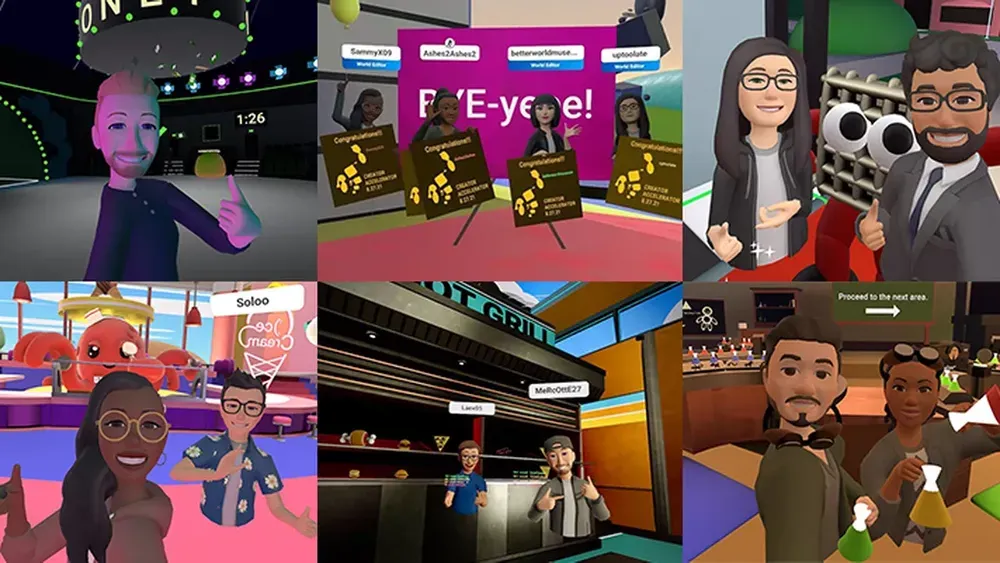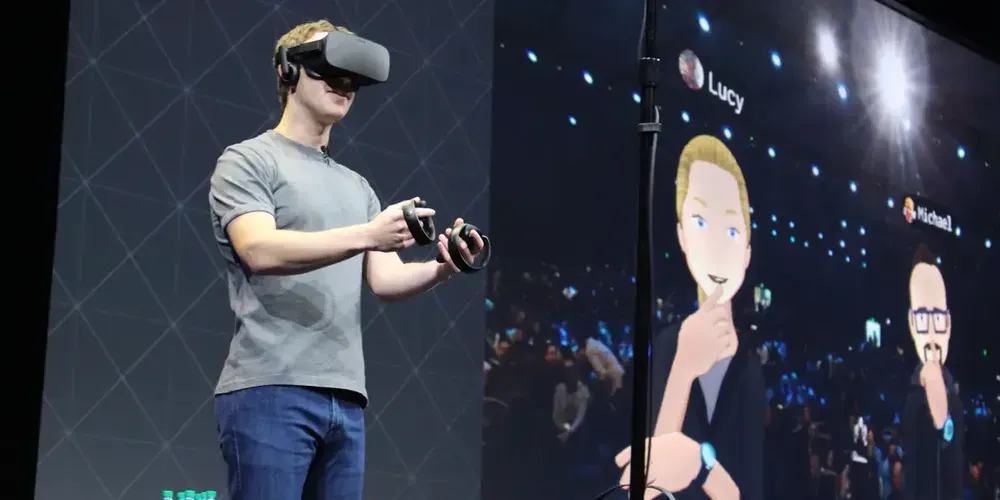"ARTIFICIAL" UNIVERSE: Applications of Artificial Intelligence in the Metaverse

A brief introduction to the metaverse and how AI applications make and sustain the metaverse.
The Metaverse
You have probably heard of this new, exciting universe called the metaverse. It is in the news and companies like Facebook and Microsoft are putting a great deal of effort and resources into building their metaverse in real-time. In fact, Facebook rebranded itself as Meta on October 28, 2021, putting its co-founder Mark Zuckerberg in the spotlight as a leading ‘metaverse optimist’.
The word “metaverse” is coined from two words; a Greek word meta meaning beyond and verse, universe. Popularized lately, the term has its roots in Neal Stephenson’s science fiction novel Snow Crash published in 1992. The novel presents the metaverse as a 3D virtual space where humans appear and communicate successfully as programmable avatars. Also, an imaginary future of the metaverse is theatrically projected in a 2018 film adaptation of Ernest Cline's 2011 sci-fi novel, Ready Player One. The Oasis, accessible by a virtual reality (VR) headset and wired gloves in the film, illustrates the metaverse, depicting its applicability to renewing humanity's prospect of survival in a dystopian future.

According to Wikipedia, A metaverse is a network of 3D virtual worlds focused on social connection. I would take a step further to give a simpler definition of metaverse as:
A digital place enhanced by Virtual Reality (VR) and Augmented Reality (AR) and truly owned by its users, allowing people across the globe to be socially active and economically independent while utilizing tools for creativity and innovation without any central authority.
At the intersection of the physical and virtual worlds lie the metaverse, with artificial intelligence (AI) and augmented reality (AR) enabling rewarding, human navigation of both worlds. The dynamic nature of digital worlds necessitates AI applications to facilitate learning, understanding, and a fulfilling exploration of the metaverse. As a ground-breaking innovation, the metaverse will empower AI systems to constantly harmonize with human perspectives. With the support of AI, blockchain technology and Web3 tools will be required to achieve a decentralized metaverse comprising an interoperable, open-source public network that guarantees the steady interlinkage and overlap of several virtual realms.
Applications of AI in the Metaverse

As the metaverse will consist of immersive worlds that anyone can create, customize, and interact with, better machine learning algorithms have to be built to provide deeper and richer communication between people and AI systems. Not long ago, Mark Zuckerberg announced Project CAIRaoke to help foster the development of this aspect. According to him, Project CAIRaoke is a fully end-to-end neural model for building on-device assistance. It integrates the technique that supports blender bot with the newest conversational AI systems, optimizing them to accomplish more effective interactional potentials.
Blender bot: An open-source chatbot with its own long-term memory and the ability to access the internet.

Since the metaverse is human-oriented and the ability to identify co-participants in any interaction is paramount, the programmable avatars that represent humans must be lifelike and unique in their interactions to make communication effective and highly realistic. By examining 2D user images or running 3D scans, AI mechanisms offer distinctly simulated visual representations and precise avatar creation with typical traits such as hairstyle, facial expression, and emotions that are striking matches of their users in the metaverse.

Also, AI plays a crucial role in facilitating language processing in the metaverse. AI has made verbal interaction with anyone possible in the virtual universe, regardless of linguistic difference. For instance, AI machines will help to convert my spoken English Language for the benefit of a French speaker, or vice versa. The translation is done in split seconds. And with the support of 5G, higher internet speed will make it as fast as having a face-to-face conversation.

In addition, access is fundamental to exploring the comfort of the digital world. The equipment used to access the metaverse such as the VR headset and glasses, and the gloves are products of AI with high-level machine learning algorithms. The sensors in these pieces of equipment predict a person's movements and send signals to the computer to replicate their patterns. Outstanding examples of the VR headset and glasses are Meta Technologies' Meta Quest 2 and Microsoft's HoloLens, respectively.
Metaverse platforms powered by AI have emerged recently, bringing together experiences that span both the digital and virtual worlds. Prominent among these are Microsoft Mesh announced in 2021
and Facebook Horizon worlds https://about.fb.com/news/2021/08/introducing-horizon-workrooms-remote-collaboration-reimagined/
These platforms enable people to play, work and connect in the metaverse.
It is essential to note that it might take some time to make this innovation as good as we imagine it to be in its early days. Just as hackers hacked smart contracts of crypto organizations to steal crypto-assets a few years ago, there might be errors and bugs that hackers would take advantage of. For instance, a person’s character or avatar might be replicated, including the way they speak. This can be used to steal sensitive information from people who are deceived into feeling that they are communicating with the right person or set of people.
A smart contract is an automated contract that consists of several lines of code stored on a blockchain that runs when predetermined conditions are met.
Conclusion
Special media features and Meta Technologies' exceptional interest in the metaverse have increased awareness tremendously about its existence, connection, and relevance to humanity. Inspired by sci-fi, metaverse stands out as a virtual universe that serves as a converging spot for the physical and virtual worlds. Strengthened by virtual reality (VR) and augmented reality (AR), metaverse is majorly powered by artificial intelligence (AI). AI fosters human/social interaction within and with immersed virtual worlds in a decentralized metaverse, guaranteeing realism, great simulation experience, accurate user identity and intelligibility, and the tools needed to access the artificial universe. Thus, without AI, it would be extremely challenging to create the earliest versions of the PlayStation VR games, let alone develop the Metaverse experience to the present, impressive stage. And it is important to watch out for weak spots that can be exploited to undermine the metaverse.
Author: Sifon Udonsek
About the author
Email: sifonudonsek@gmail.com
Twitter: @ceefoon
Instagram: @ceefoon

